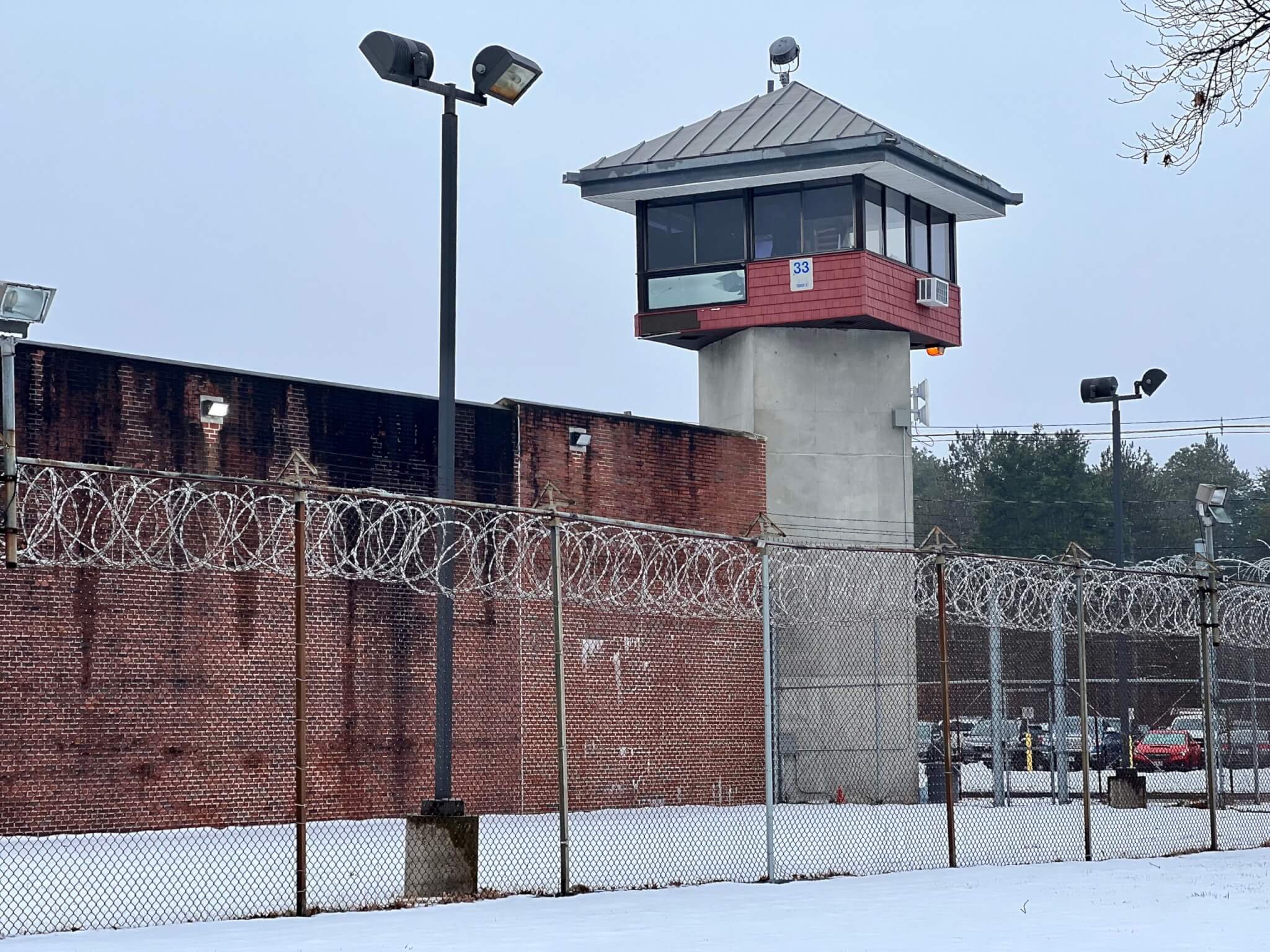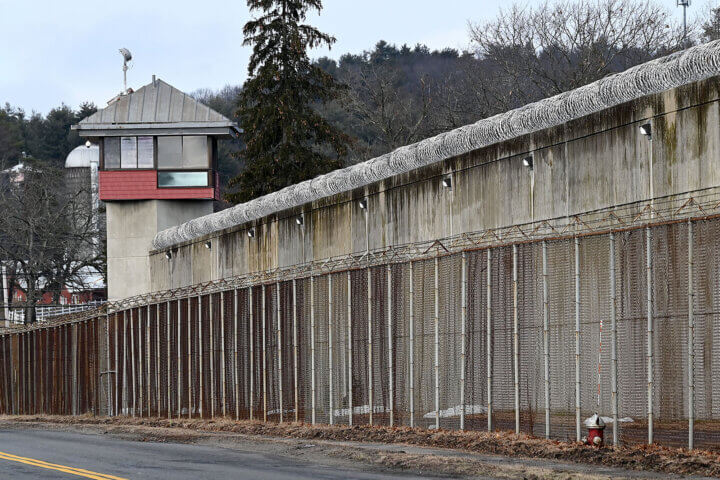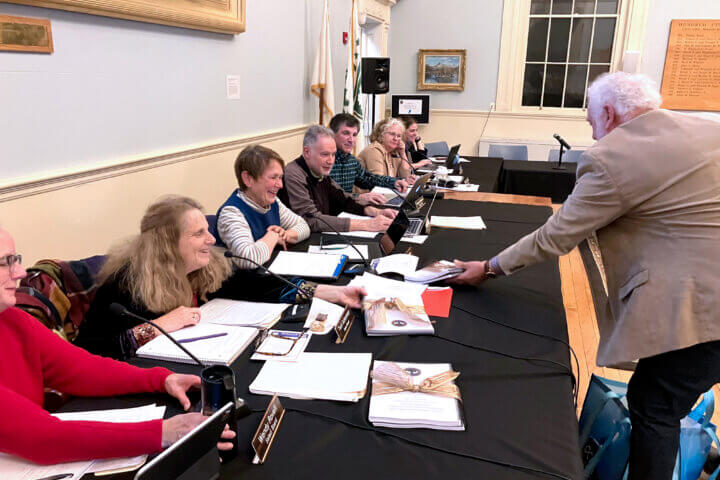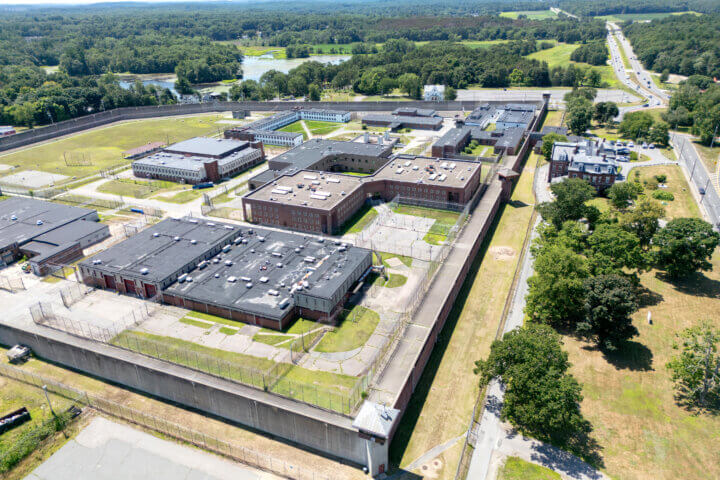By Sammy Grobman — Boston University Statehouse Program
State officials are pledging collaboration with residents in potential plans for the MCI-Concord property, but what exactly that might look like isn’t yet locked down.
“There is almost no chance that Concord will be denied a significant voice,” insisted Sen. Michael Barrett, D-Lexington, at a League of Women Voters of Concord-Carlisle forum on the soon-to-be-shuttered prison.
“The state is incredibly invested in making this a model of local-state collaboration.”
Barrett’s comments came at a panel that included Rep. Simon Cataldo, D-Concord, Deputy Town Manager Megan Zammuto and Lee Smith, chair of the Concord Housing Development Corporation.
“We’re just at the beginning here,” said Zammuto. “We are really working right now to gather information, gather resources, initiate and begin relationships and set the stage for what’s really a multi-year effort.”
The Commonwealth announced the prison closure plan in late January, with a target date of June to move all inmates and staff to other locations. At the time, local officials said they received no advance notice of the move.
Cataldo also stressed the promise of collaboration in future planning around MCI-Concord.
“I’m interested in creating a robust and flexible framework for front-end collaboration between the relevant stakeholders, including the town, and formalizing that in some fashion which doesn’t yet exist,” he said.
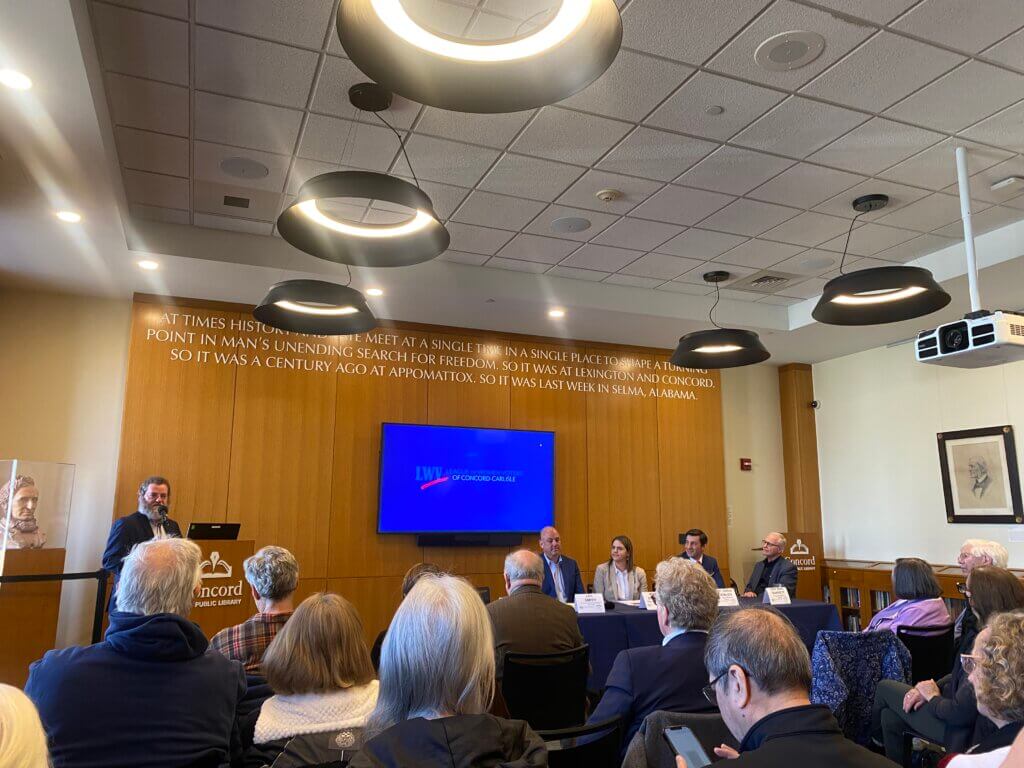
‘Trust and cooperation’
But Select Board Chair Henry Dane, one of the scores of Concordians in attendance at the Concord Free Public Library forum last Friday, said “it’s important that we put together a group from Concord with our own housing and environmental and facilities resources” and come up with a plan that “is appropriate for the town.”
The Select Board hasn’t decided on their approach to partnership with legislative bodies, Dane said, but it’s critical to foster “an attitude of trust and cooperation” between the town and the state Division of Capital Asset Management and Maintenance, or DCAMM, which Zammuto has said will “facilitate” the sale, lease or transfer of the MCI property.
“If you look at the current legislation, it has all the resources that we need in order to accomplish this,” Dane said.
“The [DCAMM] commissioner has the authority to do everything you want him to do without the need of any additional legislative involvement in this process.”
Cataldo reiterated his desire to work with Concord residents and Select Board members.
“Through careful and thoughtful lawmaking, we can formalize a robust role for Concord in the front end of this process,” he said. “I have asked the Select Board to collaborate in that effort — an effort that I am very confident Concord residents support.”
Rezoning ahead?
Communication between residents and officials will be vital in these plans, according to Zammuto.
“Rest assured the opportunities for input will be plentiful, and I hope that we continue to be invited to forums like this, but we’ll also take the lead on establishing additional opportunities for conversation,” she said.
Cataldo also assured the audience that any development would require rezoning the land, and “they would have to go through Town Meeting to approve zoning changes,” he said.
However, Cataldo added, Gov. Maura Healey’s 2025 budget proposal has “no statutory advisory role for the town” regarding the planned closure and possible development.
DCAMM Commissioner Adam Baake said he was “really impressed by how well attended this [forum] is, how well organized this is, how thoughtful the discussion is, and how collaborative the spirit seems to be.”
To someone who has worked for and with other municipalities in the past, Baake said, “You all really stand out on many fronts.”


